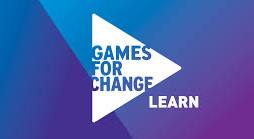Dive Brief:
- Paradise Valley Unified School District in Phoenix is among those that has adopted inclusive strategies for identifying gifted students to buck a trend that leaves English language learners and other underrepresented minorities out.
- District Administration reports Paradise Valley uses the Naglieri Nonverbal Ability test that assesses nonverbal reasoning and general problem-solving skills without words or numbers, and it universally screens students to avoid a bias in recommendations for testing.
- Additional tips for developing more inclusive programs include training teachers to know what gifted student behavior looks like across cultures, offering information sessions in multiple languages for parents about the needs of gifted students and available resources, and not relying on differentiated instruction to serve gifted students.
Dive Insight:
Universal screening for gifted education is difficult because it costs districts time and money to assess every student. In the absence of such funds, schools rely on teachers and parents to recommend students for gifted education. But English language learners and students from low-income families as well as black and Latino students are less likely to have advocates ensuring they are considered for gifted programs. Schools can get around this by improving teacher training and actively working to address the biases that disproportionately keep underrepresented students from gifted programs. Better identification procedures, even absent universal screening, can help create more representative programs.












